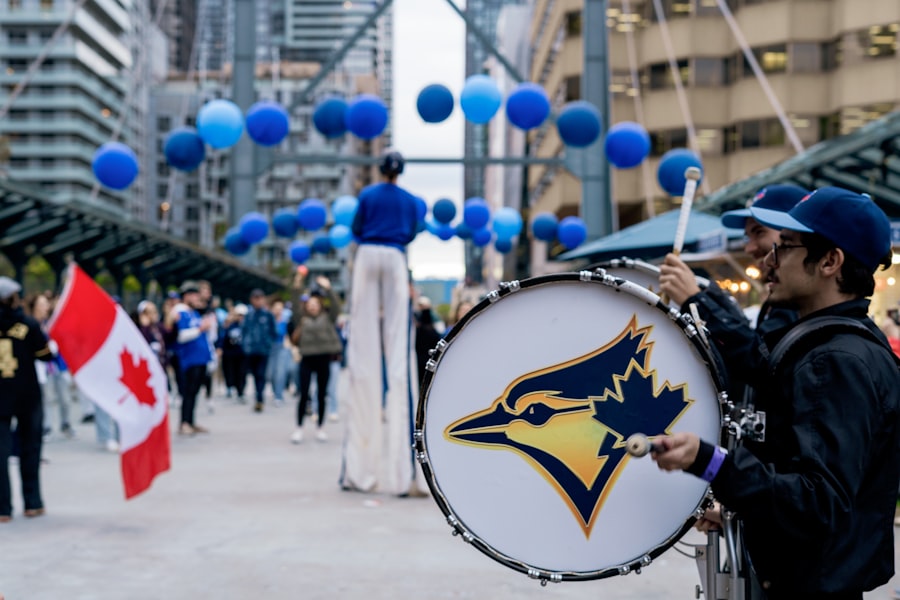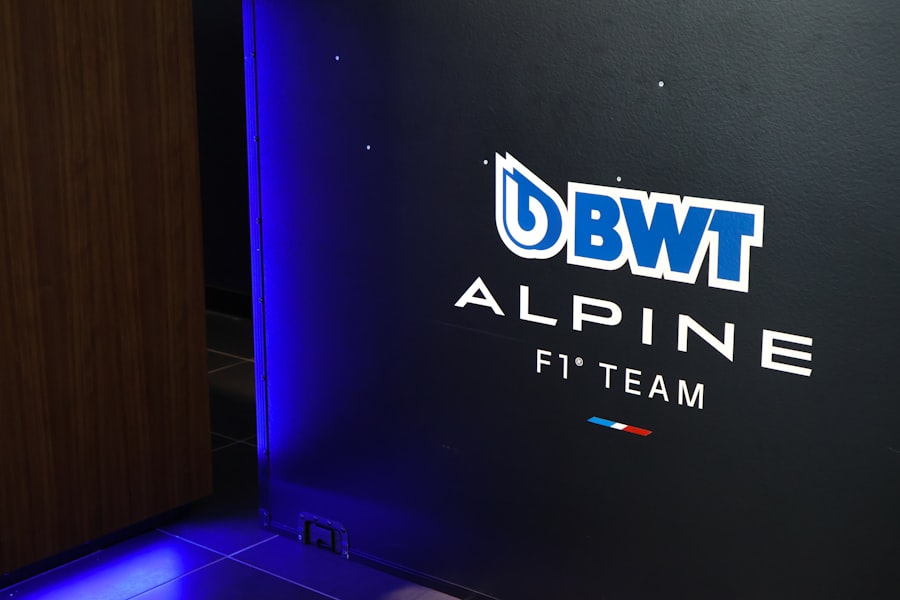Branding in the NBA transcends mere logos and team colors; it encapsulates the essence of a franchise, its culture, and its connection to fans. The NBA has cultivated a unique brand identity that resonates globally, making it one of the most recognizable sports leagues in the world. Teams like the Los Angeles Lakers and the Boston Celtics have established rich histories that contribute to their brand equity.
The Lakers, for instance, are synonymous with Hollywood glamour and star power, while the Celtics embody a legacy of tradition and success. This deep-rooted branding not only attracts fans but also creates a loyal following that extends beyond geographical boundaries. Moreover, the NBA’s branding strategy is intricately linked to its players, who often become ambassadors for their teams and the league as a whole.
The league has successfully positioned its stars—such as LeBron James, Stephen Curry, and Kevin Durant—as not just athletes but as global icons. This approach enhances the overall brand value of the NBA, as these players engage with fans on multiple platforms, from social media to community events. The emotional connection that fans develop with these players further solidifies their allegiance to the teams they represent, creating a powerful synergy between individual branding and team identity.
Key Takeaways
- Strong branding is essential for NBA teams to build loyalty and market presence.
- Social media platforms are key tools for engaging fans and amplifying marketing efforts.
- Sponsorship deals provide significant revenue and enhance brand visibility in NBA marketing.
- Player endorsements influence fan behavior and boost marketing campaign effectiveness.
- Data analytics enable targeted marketing strategies, improving fan engagement and ROI.
Leveraging Social Media for Successful NBA Sports Marketing
Social media has revolutionized how the NBA engages with its audience, providing a platform for real-time interaction and content sharing. The league has embraced platforms like Twitter, Instagram, and TikTok to reach younger demographics, creating a vibrant online community that thrives on instant updates and behind-the-scenes content. For example, during the NBA playoffs, teams often share highlight reels, player interviews, and fan reactions, fostering a sense of immediacy that traditional media cannot replicate.
This strategy not only keeps fans informed but also encourages them to participate in conversations surrounding their favorite teams and players. Additionally, social media allows for targeted marketing campaigns that can be tailored to specific audiences. The NBA utilizes data analytics to understand fan preferences and behaviors on these platforms, enabling teams to craft personalized content that resonates with their followers.
For instance, the Golden State Warriors have effectively used Instagram Stories to showcase player workouts and game-day preparations, creating an intimate glimpse into the lives of their athletes. This approach not only enhances fan engagement but also drives merchandise sales as fans feel more connected to their favorite players.
Maximizing Sponsorship Opportunities in NBA Sports Marketing

Sponsorship plays a pivotal role in the financial ecosystem of the NBA, providing teams with essential revenue streams while offering brands unparalleled exposure. The league has strategically partnered with various companies across different sectors, from technology giants like Microsoft to beverage brands like Coca-Cola. These partnerships often extend beyond traditional advertising; they involve collaborative marketing campaigns that leverage both the brand’s and the team’s strengths.
For example, the partnership between the NBA and Nike has led to innovative jersey designs that not only promote team identity but also enhance fan engagement through limited-edition releases. Furthermore, sponsorship opportunities in the NBA are not limited to just team partnerships; they also encompass arena naming rights and event sponsorships. The Staples Center in Los Angeles is a prime example of how naming rights can elevate a brand’s visibility.
By associating with a high-profile venue that hosts numerous events throughout the year, sponsors can reach diverse audiences beyond just basketball fans. This multifaceted approach to sponsorship allows brands to maximize their investment while contributing to the overall growth of the league.
The Impact of Player Endorsements in NBA Sports Marketing
| Metric | Description | Example | Impact |
|---|---|---|---|
| Endorsement Revenue | Annual income generated by NBA players through endorsements | LeBron James: 50 million | Boosts player’s overall earnings and marketability |
| Brand Awareness Increase | Percentage increase in brand recognition after player endorsement | +30% for Nike after signing Kevin Durant | Enhances brand visibility and consumer recall |
| Social Media Engagement | Growth in likes, shares, and comments linked to endorsement campaigns | +45% engagement on Adidas posts featuring James Harden | Drives consumer interaction and brand loyalty |
| Merchandise Sales Lift | Increase in sales of player-related merchandise post-endorsement | +25% sales of Stephen Curry sneakers | Direct revenue growth for brands and players |
| Fan Base Expansion | Growth in fan following attributed to player endorsements | +10 million followers for Giannis Antetokounmpo | Expands market reach and potential customer base |
Player endorsements are a cornerstone of NBA sports marketing, significantly influencing consumer behavior and brand perception. Athletes like Michael Jordan have set a precedent for successful endorsement deals, with his partnership with Nike giving rise to the iconic Air Jordan brand. This collaboration not only revolutionized athletic footwear but also demonstrated how a player’s personal brand could transcend sports and enter mainstream culture.
Today, current stars like LeBron James and Kevin Durant continue this legacy by aligning themselves with brands that reflect their values and resonate with their fan base. The impact of player endorsements extends beyond just footwear and apparel; it encompasses various industries including technology, food and beverage, and even entertainment. For instance, Stephen Curry’s partnership with Under Armour has not only elevated his personal brand but has also helped Under Armour carve out a significant niche in the competitive athletic wear market.
By leveraging Curry’s influence and popularity, Under Armour has successfully positioned itself as a formidable competitor to established brands like Nike and Adidas. This symbiotic relationship illustrates how player endorsements can drive brand growth while simultaneously enhancing an athlete’s marketability.
Utilizing Data Analytics for Targeted NBA Sports Marketing Campaigns
In an era where data drives decision-making, the NBA has harnessed analytics to refine its marketing strategies and enhance fan engagement. Teams are increasingly utilizing data analytics to gain insights into fan behavior, preferences, and demographics. By analyzing ticket sales data, social media interactions, and merchandise purchases, franchises can tailor their marketing campaigns to resonate with specific audience segments.
For example, if data indicates that a particular demographic is more likely to attend games on weekends, teams can adjust their promotional efforts accordingly by offering special family packages or themed events. Moreover, data analytics enables teams to measure the effectiveness of their marketing initiatives in real-time. By tracking engagement metrics across various platforms, franchises can quickly identify which campaigns are resonating with fans and which ones need adjustment.
This agile approach allows teams to optimize their marketing efforts continuously, ensuring that they remain relevant in an ever-evolving sports landscape. The Philadelphia 76ers have exemplified this strategy by employing advanced analytics not only in player performance evaluation but also in understanding fan engagement patterns during games.
Creating Engaging Fan Experiences in NBA Sports Marketing

The NBA recognizes that creating memorable fan experiences is crucial for building loyalty and enhancing brand affinity. Teams are increasingly focusing on providing immersive experiences that go beyond just watching a game. For instance, many arenas now feature interactive zones where fans can engage with virtual reality experiences or participate in skill challenges related to basketball.
The Atlanta Hawks have implemented such initiatives by creating a “Hawks Experience” area within their arena that allows fans to shoot hoops alongside virtual representations of their favorite players. Additionally, fan engagement extends to digital platforms where teams can create interactive content that encourages participation. The NBA has successfully launched initiatives like “NBA Pick’Em,” where fans can predict game outcomes and compete for prizes.
This gamification of fan engagement not only enhances the viewing experience but also fosters a sense of community among fans as they share their predictions and celebrate victories together. By prioritizing fan experiences both in-person and online, the NBA ensures that its audience remains engaged long after the final buzzer sounds.
Building Successful Partnerships in NBA Sports Marketing
Partnerships are integral to the success of NBA sports marketing strategies, as they allow teams to leverage each other’s strengths for mutual benefit. Collaborations between franchises and local businesses can create unique promotional opportunities that enhance community engagement while driving revenue. For example, the Miami Heat have partnered with local restaurants to offer exclusive game-night dining experiences for fans attending home games.
This initiative not only supports local businesses but also enriches the overall game-day experience for attendees. On a larger scale, partnerships with global brands can amplify a team’s reach and visibility. The NBA’s collaboration with Tencent in China exemplifies how strategic partnerships can open new markets and engage international audiences.
Through this partnership, Tencent streams live games and provides exclusive content to Chinese fans, significantly expanding the league’s footprint in one of its largest international markets. Such partnerships not only drive revenue through broadcasting rights but also foster cultural exchange between basketball enthusiasts across different regions.
The Future of NBA Sports Marketing: Trends and Innovations
As technology continues to evolve at a rapid pace, the future of NBA sports marketing is poised for transformative changes driven by innovation. One significant trend is the increasing integration of augmented reality (AR) and virtual reality (VR) into fan experiences. These technologies offer immersive ways for fans to engage with their favorite teams and players from anywhere in the world.
For instance, AR applications could allow fans to visualize player stats or game highlights by simply pointing their smartphones at their screens during live broadcasts. Additionally, sustainability is becoming an essential focus within sports marketing as fans increasingly prioritize environmental responsibility. The NBA has already begun implementing eco-friendly practices within its arenas and operations; however, there is potential for further innovation in this area through partnerships with sustainable brands or initiatives aimed at reducing carbon footprints during events.
As consumer preferences shift towards sustainability, teams that embrace these values will likely resonate more deeply with their fan base. In conclusion, the landscape of NBA sports marketing is continuously evolving as teams leverage branding strategies, social media engagement, sponsorship opportunities, player endorsements, data analytics, fan experiences, partnerships, and emerging trends to connect with audiences on multiple levels. As technology advances and consumer expectations shift, the league will need to adapt its strategies accordingly to maintain its position as a leader in sports marketing while fostering deeper connections with fans around the globe.



